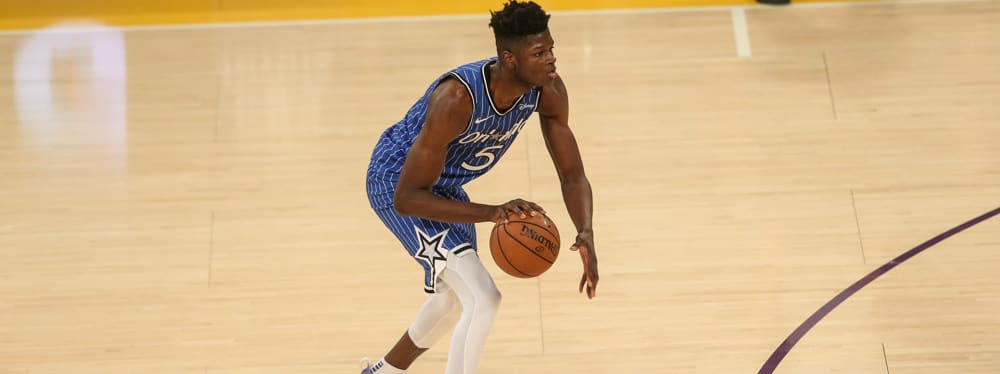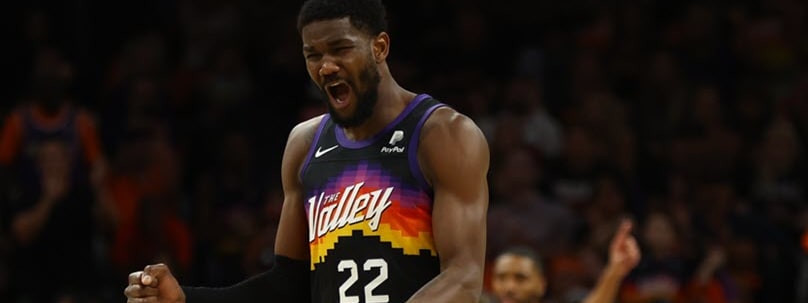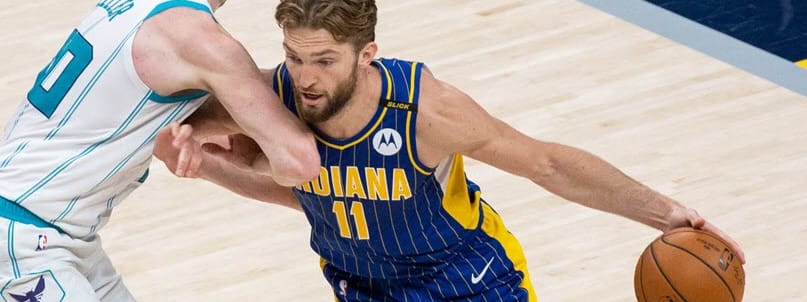Recent RotoWire Articles Featuring Michael Carter-Williams
See More
Carter-Williams struggled to stay healthy last season and appeared in just 31 games, averaging 8.8 points, 4.5 rebounds and 4.2 assists in 25.8 minutes. In August, Carter-Williams underwent surgery on his left ankle and was deemed out indefinitely, so it's unclear when he may be able to debut this season. Even when he does return, the landscape of the Magic's backcourt rotation is much different. While Markelle Fultz (knee) is still recovering from a torn ACL suffered in January, the Magic drafted Jalen Suggs while also retaining both Cole Anthony and R.J. Hampton. Ultimately, when everyone is healthy, Carter-Williams might be the odd man out given that his age doesn't fit Orlando's rebuilding timeline. As a result, he can be avoided in almost all drafts.
Carter-Williams had a bounce-back 2019-20 campaign, and fantasy managers in deeper leagues were able to effectively roster him for stretches. Ranking 188th on a per-game basis, Carter-Williams averaged 7.2 points, 3.3 rebounds, 2.4 assists and 1.6 combined steals-plus-blocks in 18.5 minutes while acting as a backup combo guard for the Magic. The 29-year-old former Rookie of the Year is a free agent heading into the 2020-21 season. While his career has been on a relatively downward trajectory, he might be able to continue serving as a backup point guard. However, before we can accurately predict his fantasy potential, we'll have to see which team he signs with in free agency.
Carter-Williams agreed to a one-year deal to stay with Orlando after spending the final 12 games of last season with the Magic. In those contests, MCW logged 18.9 minutes per night and averaged 5.4 points, 4.8 rebounds and 4.1 assists. The 2013 Rookie of the Year has bounced around the league after his impressive inaugural season with Philadelphia, and the Magic are his sixth team in six years. When given the opportunity, he's put up some quality fantasy numbers, averaging 13.8 points, 6.3 rebounds, 6.1 assists and 2.7 combined blocks/steals per 36 minutes. He's never caught on anywhere because of his inability to stay healthy -- 149 games missed over the last four seasons -- and his poor shot (39.7 FG%, 25.5 3P%). Carter-Williams could bounce back this season as a fixture in the Magic rotation, and his all-around play should afford him some value in deeper leagues provided Markelle Fultz doesn't emerge as a legitimate option.
Knee and shoulder injuries limited Carter-Williams to just 52 games last season, marking the third straight year where he's missed at least 25 contests. Even when he was healthy, Carter-Williams was merely a deep reserve in the backcourt, posting averages of 4.6 points, 2.7 rebounds and 2.2 assists across 16.1 minutes. Despite the struggles, the Rockets are opting to give him a look as they chase another deep playoff run. His brutal career mark of 25 percent from three-point land doesn't necessarily mesh well with the Rockets' current cast of players, but he does have some play-making ability if healthy. Still, with the likes of Chris Paul, James Harden and Eric Gordon all in the backcourt, Carter-Williams isn't going to see more than a few spot minutes most nights.
Carter-Williams appeared to be on his way to being a standout player in the NBA following an incredible rookie season with the 76ers, but it's been downhill ever since. After averaging at least 30.0 minutes per game in each of his first four seasons, Carter-Williams averaged just 18.8 minutes per game with the Bulls in 2017-18 and was in and out of the rotation for much of the year. His inefficiency is the biggest turnoff, as he's shot just 40.7 percent from the field, 25 percent from three-point range and 70 percent from the free-throw line for his career. That, combined with a high turnover rate, has dropped his value to the point where he's a non-factor in the vast majority of Fantasy formats. In joining the Hornets, Carter-Williams could be stepping into one of his final chances to prove himself at the NBA level. He'll start out the season backing up Kemba Walker at point guard, but it wouldn't be surprising if Malik Monk ultimately cuts into his minutes load.
Entering his third season, Carter-Williams will look to take the next step in realizing his potential as an above-average guard on both ends of the floor. Carter-Williams' numbers were arguably inflated during his rookie season due to the offensive-minded system he was playing within. In 2014-15, his scoring numbers took a slight dip across the board. In his 66 starts between the two clubs, Carter-Williams averaged 14.6 points (down from 16.7 points during his rookie outing), and shot 40 percent from the field. The former Syracuse standout will need to improve his shot selection, an area in which he continued to struggle last season. He should benefit from another year in coach Jason Kidd's system, which is designed to force turnovers and pressure ball-handlers on the defensive end. Given his length and athleticism, Carter-Williams is an ideal fit, but he'll need to play efficiently enough on the offensive end to warrant a significant minutes load. His 3.8 turnovers per game will need to be addressed, and if Carter-Williams continues to struggle, Kidd proved last season that he's not afraid to utilize his full bench. That said, Michael Carter-Williams will enter 2015-16 entrenched as the starting point guard, and he'll be given every opportunity to flourish in that role. At only 23 years old and with the ideal mentor in Kidd, this year should speak volumes about what kind of player Carter-Williams will be. As evidenced by his improved 6.7 assists per game last season, he's capable of facilitation an offense, and that will be his top priority this season with a talented young core of Greg Monroe, Giannis Antetokounmpo, Jabari Parker, and Khris Middleton now surrounding him.
Michael Carter-Williams is entering his second season in the NBA. As a rookie with the 76ers, he won the Rookie of the Year Award, averaging 16.7 points, 6.2 rebounds, 6.3 assists, 1.9 steals, 0.6 blocks, 0.8 three-pointers made, and 3.5 turnovers in 35 minutes per game through 70 games played. He shot 41 percent from the field on 15.1 attempts per game, 70 percent from the free-throw line on 5.2 attempts per game, and 26 percent from three-point territory on 3.0 attempts per game. His 1.9 steals per game ranked sixth in the league, and his 6.2 rebounds per game were the most in the league from the point guard position. On the season, Carter-Williams totaled 68 more rebounds than the next-leading point guard, Kyle Lowry, despite playing in nine fewer games. Carter-Williams' ability to provide points, rebounds, assists, and steals can make him a valuable commodity in many league formats, but he is also turnover prone. He's both an inefficient shooter and a primary scorer for the 76ers, which is a combination that causes significant damage to a fantasy team's overall field goal percentage. Carter-Williams should remain the starting point guard and continue to see heavy usage in 2014-15, but the acquisition of Alexey Shved and Casper Ware provides depth that was not there in 2013-14.
Selected with the 11th overall pick of the 2013 NBA Draft, rookie Carter-Williams will start at the point guard position on a team with a new head coach and a new system. The Syracuse standout will have ample opportunity to shine, as the depth chart is cleared out at the point guard position, giving him a chance to hit 30-plus minutes per night if he doesn't disappoint. Carter-Williams showed his wild style of play in the summer league, putting up 13.6 points (27 percent from the field), 4.2 rebounds, 6.8 assists, 2.0 steals and 4.8 turnovers in 34 minutes per game. His ability to put up numbers in all categories makes him a fantasy wild card. Expect to be surprised, for better or for worse, by the unpredictable rookie.












